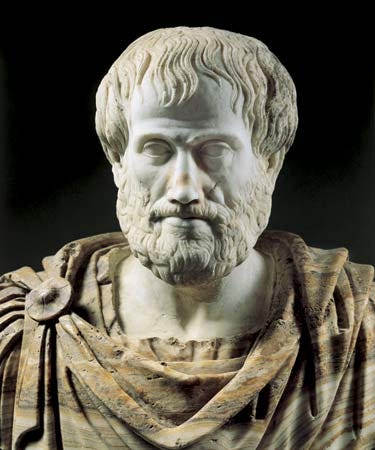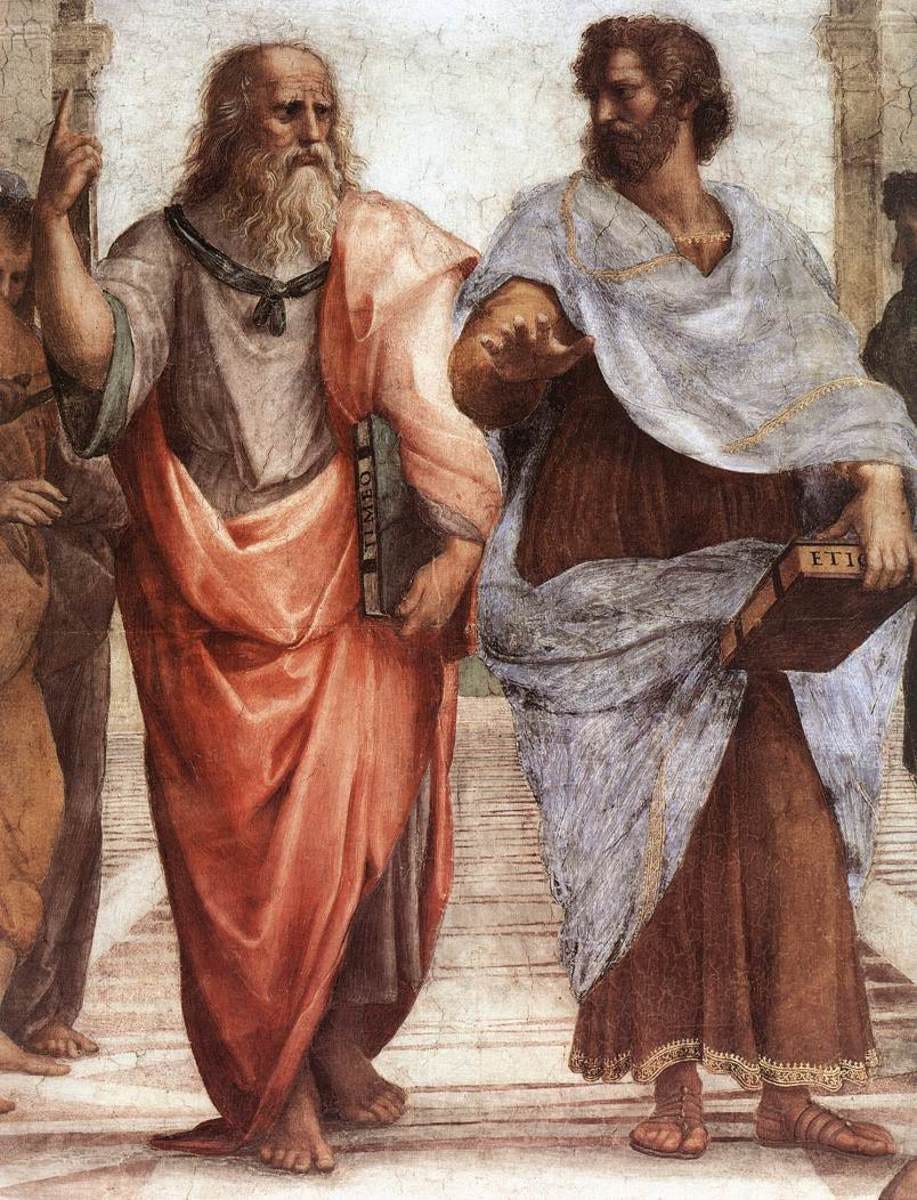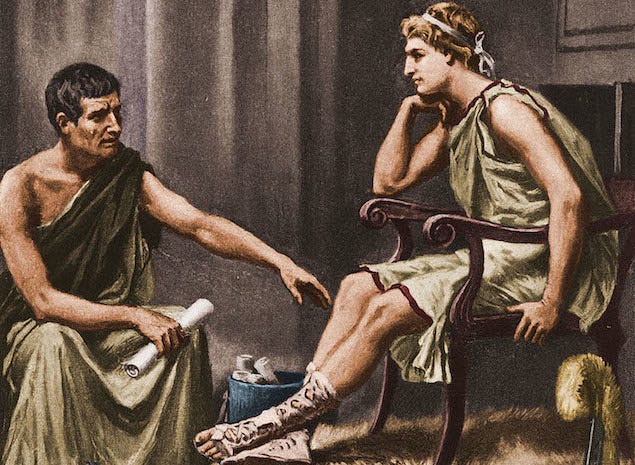Dear Classical Wisdom Reader,
He’s one of the most important and influential philosophers who ever lived.
In fact, he was involved in considerably more than just philosophy… His impact can be felt across science, literature, politics, and much more besides.
He was also the student of Plato and tutor of Alexander the Great. He is Aristotle, and he is also one of the key figures in our popular video course The Essential Greeks, which starts on January 10th!
As the start date is nearly upon us, the Early Bird Special reduced price for the Essential Greeks ends TONIGHT. So if you’re interested, act now!
This course is a fantastic opportunity to start the year the right way: with wisdom.
Through video lectures, live webinars, quizzes and more, you can gain a deeper understanding of some of the greatest minds the world has ever seen, including Homer, Socrates, Plato, Sophocles and more.
Previous participants in The Essential Greeks had this to say:
“I want to thank you for this awesome course. Preparing for it was a welcomed part of my day! Very enjoyable and relevant. The course provided a great overview of "the essential Greeks", without shortchanging their substantive contributions.” - George P
“I really loved taking the ‘Essential Greeks’ course. It helped me get a better understanding of Ancient Greek literature, philosophy and history. For me, the course helped build a starting foundation in the classics. I thought the presentation was laid out nicely. I liked how they were placed chronologically and having the lecture videos divided for each section. Also, making the transcript available along with the accompanying book was fundamental.” - Mark B
“I did start the course, and found it to be exceptional. These reminders are very helpful as well, keep them up. I have a similarly historically curious daughter that is also doing the course. We both appreciate you guys being there.” - Skip
We hope to see you there!
All the best,
Sean Kelly
Managing Editor
Classical Wisdom
Aristotle - More Than A Philosopher
by Anya Leonard
It has been said that he was a man who knew everything.
In fact, he was considered the last man who did know everything. Was he born with a supernatural Rainman-like memory? Did the Gods imbue him with the divine gift of wisdom? Maybe, but probably not.
In all likelihood, he did know everything of his own time because, frankly, most of what was known, was written by him anyway. You could not have found a more prolific, in depth and innovative thinker than Aristotle. He inscribed over 200 works (though only 31 remain), founded numerous fields of study and observation, as well as a prominent school to propel those new areas of interest.
Really, no one short column can do anything even in the remote vicinity of justice to the man’s life, contributions and influence. That doesn’t mean we won’t try, however.
For instance, if we wished to briefly review the major mental tasked achieved by Aristotle, we would be stuck with a drab list; a copy and paste of accomplishments.
It’s, unfortunately, a mistake we can’t avoid. Our suggestion would be to not actually read the whole thing (unless in a Rodgers and Hammerstein-like tune), but rather see it for the mountain that it is and skip to the next paragraph.
So, without further adieu:
In physical science, Aristotle studied: anatomy, astronomy, embryology, geography, geology, meteorology, physics and zoology.
In philosophy, he wrote on: aesthetics, ethics, government, metaphysics, politics, economics, psychology, rhetoric and theology.
He also studied: education, foreign customs, literature and poetry.
This is the moment when everyone asks, with burning jealousy in their eyes, how did he have the time in one short life? Where did he get the inexhaustible energy or the German-like discipline? We don’t know, of course. A brief overview of the ebbs and flows of his life might shed some light… we can only hope.
From the very beginning Aristotle was not like the other Athenian philosophers, for he wasn’t even Athenian. This small detail, one in which he had no choice, resulted in innumerable favorable and unfortunate occurrences in his life. It meant he was often a ‘foreigner’ because he was born in Northern Greece (more precisely, in Stageira, Chalcidice, in 384 BC, about 34 miles east of modern-day Thessaloniki). Essentially… Macedonia, the land of Alexander the Great.
Aristotle’s father, Nicomachus, was the personal physician to Alexander’s grandfather, King Amyntas of Macedon. This would have been young Aristotle’s first influence in the realm of scientific thinking. It also contributed to his vast understanding of the anatomy. In addition, it was his initial connection to the Macedonian court.
Once Aristotle’s papa passed away, his new guardian shipped him off to Athens so he could get a real education. There in the big city, he studied under Plato himself in his renowned Academy. No one would doubt that this period was extremely influential for Aristotle. After 20 odd years, in 348/47 BC, he quit the Acropolis, though no one knows for sure why he left town. One theory is that the philosopher’s ego was hurt when Plato died. He did not pass the baton to Aristotle, but named another successor instead. The other order of events is that Aristotle feared anti-Macedonian sentiments and left before Plato gave up the ghost.
Either way, Aristotle then traveled with a fellow thinker, Xenocrates, to the court of his friend Hermias of Atarneus in Asia Minor. There he jotted around, had inspired thoughts about octopuses, married Hermias’ daughter and had a baby. His excursions around Lebos were instrumental in his observations on marine life, with a description of the cephalopods’ phallus that was about two thousand years ahead of its time. Indeed it was widely disbelieved until its rediscovery in the 19th century.
When his father-in-law died, Aristotle was called back to his homeland in order to teach the king’s son. The one and only Alexander the Great, albeit at a rowdy 13 years of age. Aristotle didn’t drop everything, however, and come running to his highness. He agreed to the position only if his hometown was restored after the king had razed it. Not only that, but the city had to be repopulated, which meant its former ex-citizens were freed from slavery or pardoned from exile.
Much myth making has been done over Alexander and Aristotle’s relationship during those three years of study. The latter encouraged expansion in the east, unabashedly advising despotism to subdue barbarians. Maybe, though, the former also influenced his older mentor? Was it a reminder of age, energy and the role in history, perhaps? We, of course, have no idea.
All we do know, is that Aristotle returned to Athens, but this time to set up his own academy, the Lyceum. There he wrote the vast majority of his works, taught the next generation, and remarried after his wife’s death. It was during this 12 year stretch that his most important treatises were created, including Physics, Metaphysics, Nicomachean Ethics, Politics, De Anima (On the Soul) and Poetics.
Then Alexander died and Athens and Greece changed forever. Aristotle’s profound thoughts and benefits for the scholars could not save him from the flare up of anti-Macedonian sentiments. It took the form of ‘impiety’ accusations. Rather than face a sham trial, Aristotle fled to Chalcis, where his mother had an estate, explaining, “I will not allow the Athenians to sin twice against philosophy.” This was a shout-out to his former teacher’s teacher, Socrates. Eventually Aristotle died of natural causes in 322 BC.
His legacy, however, lived on. His works were actually lost to the west for many centuries, preserved in Arabia and only rediscovered in Europe during the middle Ages. In that time period, the writings of Aristotle carried an authority second only to the Bible.
But most importantly, Aristotle proposed a new way of thinking; a method for arriving at a conclusion. We are talking about his contributions to logic. This is how he knew everything. He didn’t know anything! What he comprehended was how to look at the world rationally and learn something.








Thank you, Anya.
Wow, fascinating